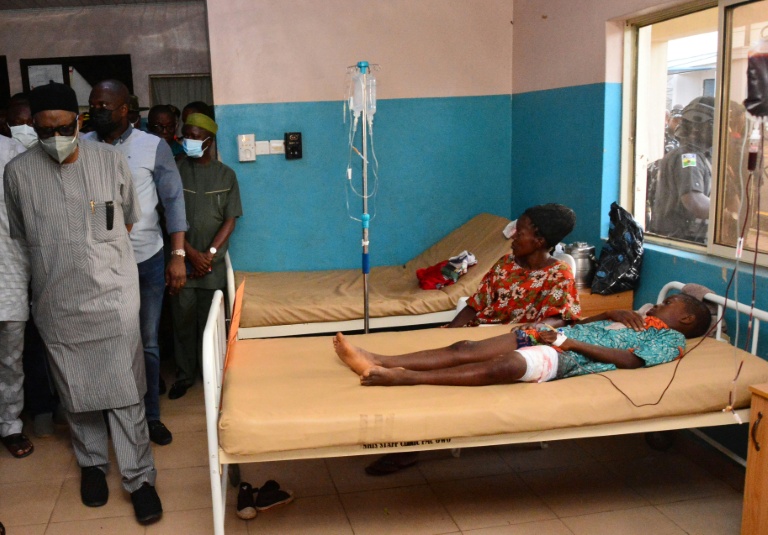A Nigerian court has postponed the trial of five men charged in connection with the deadly attack on the Saint Francis Catholic Church, which resulted in the deaths of at least 40 worshippers on June 5, 2022. The massacre, which occurred in Ondo State, shocked the nation and drew international condemnation due to its rarity in the typically safer southwestern region of Nigeria.
On what was expected to be the first day of proceedings, the accused appeared before Justice Emeka Nwite at the Federal High Court in Abuja. Dressed in brightly colored kaftans, they faced delays after prosecutors requested a new lead counsel for the case. The defense team, led by A.A. Muhammad, argued that they had been unable to meet with their clients since their arrest more than three years ago. Muhammad expressed concerns about his clients’ treatment, stating, “I’ve not been able to meet my clients… in the entire three years they have been detained.”
The court did not announce a new date for the trial, leaving many questions unanswered. Witness protection was also discussed, with prosecutors indicating that the safety of potential witnesses is a priority. They plan to call six witnesses to testify, which underscores the ongoing complexities surrounding the case.
The attack on June 5 involved gunmen who infiltrated the church during a Sunday service, opening fire on congregants while others shot from outside. Initial investigations pointed to the Islamic State West Africa Province, a group known for its violent insurgency in northeastern Nigeria, as a possible perpetrator. The accused face charges under Nigeria’s anti-terrorism law for conspiring to commit a “terrorist act,” resulting in the deaths of over 40 individuals and injuring more than 100 others.
In court, the prosecution argued against granting bail to the defendants, suggesting they may have connections to foreign terrorist groups and could attempt to flee the country. The atmosphere in the courtroom was tense, with the accused allowed to interact with supporters before being escorted away by armed security personnel.
This trial is part of a broader context of violence in Nigeria, where jihadist attacks and mass kidnappings have become increasingly common, especially in the northeast. The postponement of this trial raises concerns about the judicial process and the ongoing impact of terrorism on communities in Nigeria.
